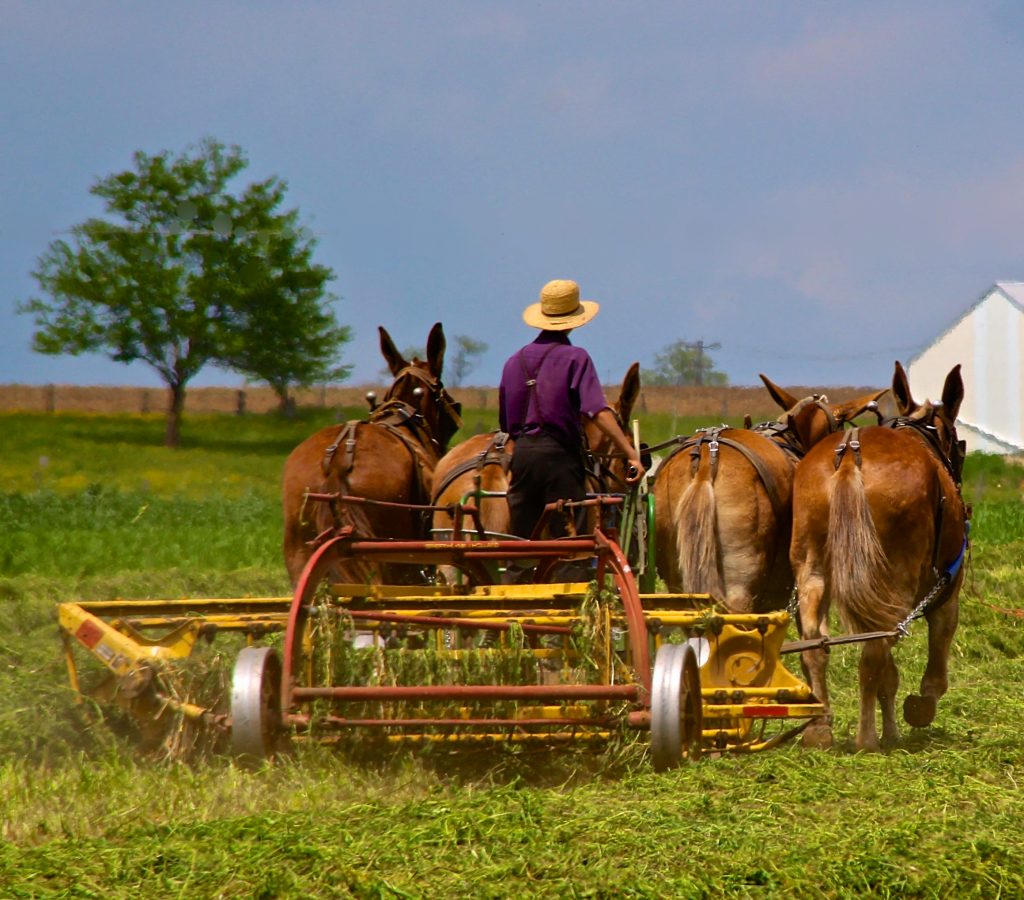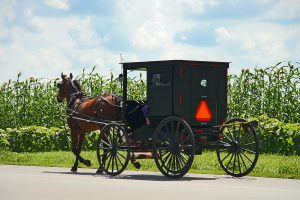 The Amish are often viewed as simple — they’re known as the “Plain People,” after all. We consider them part of the “old world”; they don’t use much technology, drive cars, or educate past the eighth grade. But to only categorize them as a quiet, self-contained religious group is to do a disservice to the Amish people. The Amish have increasingly challenged traditional business and farming practices with great success, and are as innovative and boundary-pushing as any Silicon Valley CEO.
The Amish are often viewed as simple — they’re known as the “Plain People,” after all. We consider them part of the “old world”; they don’t use much technology, drive cars, or educate past the eighth grade. But to only categorize them as a quiet, self-contained religious group is to do a disservice to the Amish people. The Amish have increasingly challenged traditional business and farming practices with great success, and are as innovative and boundary-pushing as any Silicon Valley CEO.
Amish businesses tend to be more successful than average; new businesses enjoy a 95% success rate of staying open at least five years. Compared to the nationwide average of around 50%, this is an astonishing feat.
 This is not because the Amish are born business savants but rather speaks to the heart of Amish values. They believe in hard work, community, and pragmatism, and such focus, combined with a knack for finding niche markets, allows Amish businesses to thrive where others often fail.
This is not because the Amish are born business savants but rather speaks to the heart of Amish values. They believe in hard work, community, and pragmatism, and such focus, combined with a knack for finding niche markets, allows Amish businesses to thrive where others often fail.
Business specialities tend to revolve around craftsmanship. The Amish are known for skilled woodworking, and people increasingly seek out Amish contractors and furniture makers.
When it comes to home building, the Amish outstrip competitors with their ability to erect houses quickly and for a lower cost. Danny Schwartz, an Amish contractor based in Missouri, was able to frame a 2,200 square-foot lake house for $129,000 in less than a month, something that would have “cost at least a third more and taken twice as long” with regular contractors.
For goods inside the home, Amish furniture making has moved far beyond country stores in Lancaster County, PA. It is now its own industry; Amish craftsmen sell their goods in bulk to stores like Walmart and JCPenney. In typical Amish fashion, their factories are often run by diesel engines, and woodworking is done with tools powered by compressed air.
Perhaps paradoxically, much of why the Amish are so successful in business is because of the many restrictions they face. Most Amish communities allow little — if any — access to technology, including electricity. This means that businessmen have to be more innovative in finding ways to work around their limited options. This has resulted in the Amish thriving in remarkably niche markets.
Take companies like Daystar, for example. Daystar is an Amish-crafted skylight system that mimics electric lighting in factories, workshops, schools, and homes. Better than a typical skylight, “Daystar’s unique design amplifies and disperses light evenly regardless of building size, even on cloudy days.” Created by Amish with Amish in mind, Daystar has exploded into other businesses; it can drastically reduce electricity costs for companies. Next time you’re at Costco or Walmart, look up. There’s a good chance those aren’t electric lights, but rather dozens of Daystar skylights.
Innovative technologies like Daystar would not have been created if not for Amish customs. In this case, because the Amish are not allowed to use electricity, they must find creative means of solving problems like how to light a furniture factory. In this way, the Amish end up inventing niche markets that extend far beyond Amish communities and benefit a wide variety of people and businesses.
Despite the movement toward new markets, many Amish entrepreneurs are sticking to their farming roots, finding ways to mix business and agriculture. One such example is John Kempf, founder of Advancing Eco-Agriculture.

Amish Farm in Pennsylvania
A myth about the Amish is that all of their agriculture is organic. Most Amish farmers use pesticides and other chemicals just as commercial farmers do. However, in recent years, there has been an increasing push toward organic farming among the Amish, and John Kempf seems to be at the forefront of this movement.
Pesticides can weaken plants much the same as antibiotics can weaken the human immune system, so Kempf studies the immune system of plants and develops ways to provide nutrients without using chemicals. “With plants able to defend themselves, pesticides can be avoided, allowing the natural predators of pests to flourish,” writes the Atlantic. Kempf’s Amish company has helped a number of farms (Amish or not) convert to organic agriculture.
People like John Kempf show how much the Amish are able to expand the boundaries of both farming and business. Kempf’s Amish background enabled him to see agriculture in a way many could not, and now he is transforming the way people farm. He has developed a thriving business, championed the idea of regenerative agriculture, and even testified in front of the United Nations. All with only an eighth-grade education.
Despite all this success, he still travels by horse-and-buggy. That’s the beauty of the Amish — they change the modern world while living by the ways of the old.